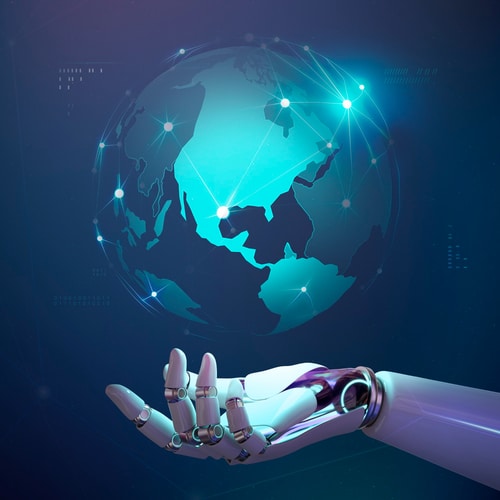How Augmented Analytics is Transforming the Analytics Ecosystem
3AI October 24, 2021

Author: Sidharth Sivasailam, Vice President – Products, Course5 Intelligence | LinkedIn – https://www.linkedin.com/in/sidharthsiva/
The world of Business Analytics is at an inflection point. Trillions of bytes of data are being generated every day; however, companies continue to struggle with harmonizing this data, analyzing the data of various shapes and sizes they are storing, determining what’s most important and what are the actions that need to be taken.
Augmented Analytics, an AI-infused approach to Data Analytics is being seen as the answer to this growing problem that companies continue to face. Using AI technologies such as Machine Learning and Natural Language Processing to augment Human Intelligence, it surfaces the insights most important to business users and enables them to consume them easily and in real-time using dynamic storytelling and automation.
But is Augmented Analytics just another fad or is it going to lead the next wave of disruption in the data and analytics space? For getting an answer to that question, let’s examine the current state with respect to analytics.
There are many companies that continue to use legacy analytics techniques and technologies which consume a considerable amount of the data team’s time for tedious tasks such as data cleansing and report building. This approach is highly ineffective with the time it takes to generate and deliver insights to business users. We also have companies that have built automation into their analytics functions to produce innumerable dashboards on a daily basis, but the adoption levels of these dashboards remain low due to the lack of curated and contextual insights they generate for the users.
Augmented Analytics bridges this gap by using Machine Learning and related technologies for automating the data preparation phase by integrating myriad data sources and getting the data to a shape and form from which it can be analyzed, understanding hidden relationships between KPIs across functions and how they impact overall business metrics and then generate relevant insights based on what it has uncovered. These insights are then delivered to business users in a curated, humanized, personalized manner using Natural Language Generation technology.
With this automated, efficiency-driven approach, companies can save money by reducing the dependency on large data teams and data scientists, speed up decision-making exponentially, increase employee trust around data, and enable them to devote all their time and effort only to critical analysis.
This approach to analytics is going to fundamentally change the way Business Intelligence is generated and consumed going forward. In the next 5 years, not only will we see Augmented Analytics becoming the de-facto approach for implementing analytics in companies, but we will also start seeing advancements in parallel with respect to automation efficiency, types of data sources such implementations plug into, and systems becoming smarter with every insight they generate.
With this paradigm shift happening in the analytics space, we will also see the rise of a related concept—that of an Augmented Consumer. Insights will get delivered through the medium and that at that point of time best suited for the business user rather than the user always having to access a dashboard to consume it. The Augmented Consumer will drive the adoption of Conversational Assistants integrated with various touchpoints like Slack, Teams, Smart Speakers, Mobile Apps, SMS, etc. This will lead to a steep decline in the usage of analytics dashboards in the coming years. Gartner predicts that by 2023, 25 percent of employee interactions with applications will be via voice, up from under 3 percent in 2019. Although most chatbots and VAs are still text-based, AI-enabled speech-to-text and text-to-speech hosted services are improving rapidly. As a result, deployment of voice-based solutions will grow.1
By enabling true data democratization, Augmented Analytics will also bring another radical new concept to workplaces. With Self-service Data Science capabilities that many Augmented Analytics tools provide as a capability, Data Exploration, Feature Engineering and Feature Selection can become shared, real-time, transparent processes. Coworkers might be able to share and interact with the generated analysis, findings, and insights of their teammates, converting the workplace into a Social Network of valuable business information.
In many ways, Augmented Analytics is the next frontier for data and extracting meaningful business intelligence from it. It has made it simpler for all companies to become data-driven and for business users to use their time more effectively. Users no longer have to scratch their brains on what the data means anymore. The Augmented Analytics application will provide them the insights they need and it will arrive at record speed, enabling businesses to connect the dots between “What has happened”, “Why it has happened”, “What is going to happen next” and “What action you need to take!”
Reference:
About Course5 Intelligence
Course5 Intelligence drives digital transformation for businesses through analytics, insights, and artificial intelligence. The company helps organizations make the most effective strategic and tactical decisions related to their customers, markets, and competition at the rapid pace that the digital business world demands. Course5 Intelligence creates value for businesses through 360-degree data convergence and actionable insight.






